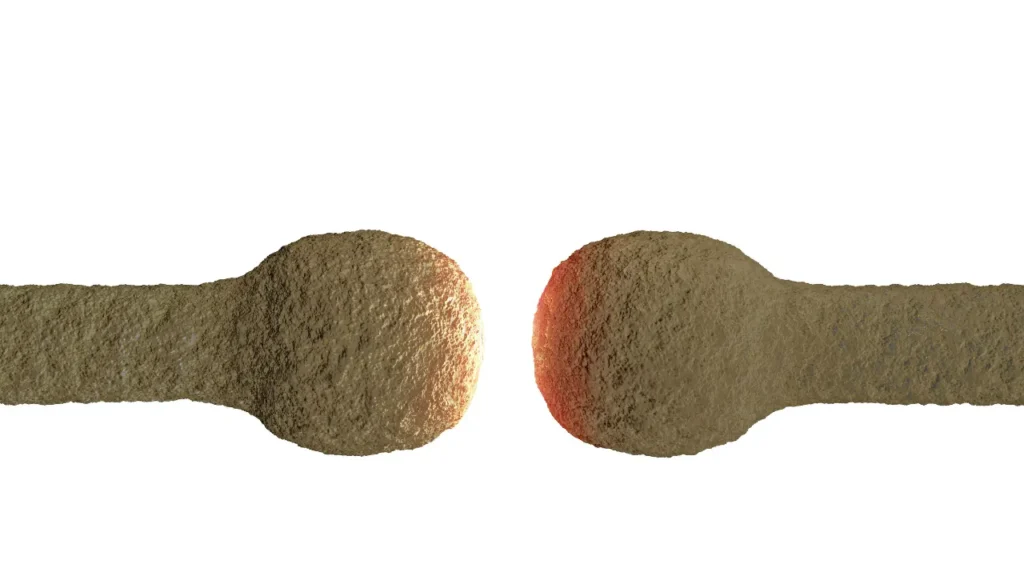Saffron is a highly valued spice that has fascinated people for millennia in many cultures due to its culinary abilities and medicinal properties. It is generated from the stigmas of Crocus sativus flowers. This article explores the many uses of saffron, focusing on its use as a nootropic supplement to improve alertness, focus, and cognitive function. It combines information on the chemical makeup, health advantages, best dosage, adverse effects, possible drug combinations, and responsible use to provide a thorough guide for anyone interested in learning more about the supposed cognitive benefits of saffron.
You May Also Like:
Levium Premium Liquid Fast-Acting Natural Stress Relief Supplement: In-Depth Review
NutriRise Ashwagandha Root Capsules Reviewed: A Leading Herbal Stress Support Product
Saffron: Benefits, Dosage, Side Effects, Drug Interactions, and Other Important Information is an original (NootropicsPlanet) article.
Nature of Saffron
Dried stigmas from the Crocus sativus flower are used to make saffron, a highly prized spice with a distinct perfume, vivid color, and bitter flavor. Saffron is mainly grown in Iran, Greece, Morocco, and India. Its culinary, cosmetic, and medical uses date back over 3,000 years. The tiny stigmas must be hand-picked and dried, an arduous process that adds to saffron’s reputation as one of the most expensive spices in the world per weight. It is used in many different cultures and cuisines to add a touch of luxury and maybe even health advantages to food.
Health Benefits of Saffron
Saffron has garnered attention for its potential health benefits, particularly regarding brain health and cognitive function. The unique blend of bioactive compounds in saffron, including crocins, crocetin, picrocrocin, and safranal, contributes to its therapeutic effects. Here, we delve into the detailed health benefits of saffron for the brain:
Antidepressant Effects
As a natural antidepressant, saffron has demonstrated encouraging effects. Numerous studies suggest that the active ingredients in saffron can alter neurotransmitters like dopamine and serotonin, which are essential for mood regulation. Saffron may increase serotonin availability in the brain by perhaps blocking its reuptake in a manner akin to that of several manufactured antidepressants. According to clinical investigations, taking saffron supplements may significantly reduce depression symptoms, which are frequently similar to those treated with traditional antidepressants but have fewer adverse effects.
Anxiolytic Properties
Saffron may have anxiolytic (anxiety-reducing) qualities in addition to its antidepressant ones. In addition to saffron’s anti-inflammatory and antioxidant properties, neurotransmitter modulation may help lower anxiety levels. Studies have indicated that saffron can alleviate symptoms of anxiety in clinical populations, providing a natural remedy for anxiety disorders.
Cognitive Enhancement
Supplementing with saffron has been linked to better cognitive function, which includes better learning, memory, and attention spans. Saffron’s anti-inflammatory and antioxidant properties may shield neurons from oxidative stress and inflammation, two conditions that can negatively impact cognitive function. Saffron’s capacity to enhance neuronal survival and neuroplasticity also contributes to its cognitive-improving properties. Supplementing with saffron has been shown to improve cognitive assessments in those with mild cognitive impairment and Alzheimer’s disease.
Neuroprotection
Because of its high antioxidant profile, saffron can help prevent oxidative stress and neutralize free radicals, two processes linked to the etiology of neurological illnesses, including Parkinson’s and Alzheimer’s. Saffron may have neuroprotective effects by reducing oxidative damage, which could delay the onset of neurodegenerative diseases. Moreover, the anti-inflammatory qualities of saffron can lessen the neuroinflammation frequently connected to these illnesses.
Mood Improvement and Emotional Well-being
Saffron’s ability to elevate mood goes beyond its ability to reduce anxiety and treat depression. Because of its effects on neurotransmitter systems, people may feel more stable and less prone to mood fluctuations, which can improve emotional well-being overall. This holistic approach to enhancing mood and emotional wellness might be beneficial in today’s fast-paced environment, where stress and emotional instability are frequent.
Sleep Quality
According to recent studies, saffron may also improve the quality of sleep. Saffron may enhance sleep patterns and lessen the symptoms of insomnia by controlling neurotransmitters involved in the sleep-wake cycle, such as serotonin. Beyond its benefits for cognitive and behavioral health, saffron may also improve sleep quality, though further research is needed.
Research on the many benefits of saffron for brain health and cognitive performance is mounting. Saffron exhibits significant potential as a natural supplement for improving mental well-being and cognitive performance. It may also benefit sleep quality and work as an antidepressant, anxiolytic, cognitive enhancer, neuroprotector, and mood stabilizer. It is important to consult with a medical specialist before taking saffron or any other supplement, especially if you have health issues or are using other medications.

Chemistry of Saffron
The chemical composition of saffron is complex and comprises several bioactive compounds, including crocins, crocetin, picrocrocin, and safranal.
- Crocins are water-soluble carotenoids responsible for saffron’s characteristic golden-yellow hue. They are esters of crocetin and are known for their potent antioxidant properties.
- Crocetin is a direct carotenoid precursor to crocins and contributes to the antioxidant activity of saffron.
- Picrocrocin is the compound responsible for saffron’s bitter taste. Upon hydrolysis, picrocrocin yields glucose and safranal.
- Safranal gives saffron its distinct aroma and also exhibits antioxidant activity.
These compounds, particularly crocins and safranal, have been studied for their pharmacological effects, including antioxidant, anticancer, anti-inflammatory, and neuroprotective properties.
Physiological Mechanism of Action
Saffron’s physiological effects, particularly its cognitive and neuroprotective benefits, can be attributed to its complex interaction with various biological pathways:
- Antioxidant Mechanism: Crocins and safranal scavenge free radicals and inhibit oxidative stress in brain cells, which is crucial for preventing neuronal damage and enhancing cognitive function.
- Neurotransmitter Modulation: Saffron influences the levels and activity of several neurotransmitters, including serotonin, dopamine, and glutamate. This modulation is thought to contribute to its antidepressant, anxiolytic, and cognitive-enhancing effects. It may enhance serotoninergic activity by inhibiting serotonin reuptake, similar to the mechanism of action of certain antidepressants.
- Neuroprotection and Neuroplasticity: Saffron components have been shown to promote neuronal survival and neuroplasticity, the ability of the brain to form new neural connections, which is achieved by upregulating brain-derived neurotrophic factor (BDNF), a protein that supports brain health and cognitive functions.
- Anti-inflammatory Action: Saffron exerts anti-inflammatory effects by inhibiting the production of pro-inflammatory cytokines and mediators, which can play a role in neurodegenerative diseases and cognitive decline.

Optimal Dosage of Saffron
The best amount of saffron to take to improve cognitive function depends on several factors, such as age, health, and sensitivity to the substance. A broad range of dosages has been used in clinical trials, usually 15 to 30 mg daily; however, some studies have used as much as 100 mg daily for short-term therapies. Beginning with a smaller dose and gradually raising it is essential to determine tolerance and prevent any adverse effects.
Side Effects of Saffron
When used in food preparation or at the approved dosages as a supplement, saffron is usually regarded as safe. On the other hand, side symptoms like headache, nausea, dizziness, anxiety, and dry mouth might occur with large dosages. Rarely, consuming too much (more than 5 grams daily) might have more serious consequences, such as poisoning and even death.
Potential Substance Interactions with Saffron
Owing to saffron’s impact on neurotransmitter systems, it may interact with pharmaceuticals that target similar pathways, including antidepressants, antipsychotics, and Alzheimer’s disease medications. It might also interact with blood pressure and blood thinners, amplifying their effects and perhaps producing unfavorable results. As a result, it is crucial that you speak with a doctor before beginning a saffron supplement program, particularly if you also take other prescriptions.

Best Responsible Uses of Saffron
If you’re thinking about using saffron for its nootropic properties, make sure you utilize it responsibly by starting with the lowest dose and keeping a close eye out for any adverse effects or interactions with other drugs. Getting saffron from reliable vendors is also a good idea to guarantee purity and efficacy. Furthermore, the cognitive benefits of saffron supplementation will be maximized when combined with a healthy lifestyle that includes enough sleep, exercise, and a balanced diet.
Saffron:
Conclusion
Modern research has increasingly focused on uncovering the potential health benefits of saffron, leading to a growing body of evidence supporting its various therapeutic effects. Saffron possesses many potential health benefits, including mood enhancement, cognitive function support, eye health protection, heart health promotion, and anti-inflammatory/antioxidant effects. Saffron has been investigated for its potential therapeutic effects in a range of other health conditions, including premenstrual syndrome (PMS), erectile dysfunction, and cancer.
However, while preliminary studies have shown promising results, further research, including large-scale clinical trials, is necessary to fully elucidate saffron’s therapeutic potential and establish optimal dosages and treatment protocols for various health conditions. Individuals interested in using saffron for medicinal purposes should consult with a healthcare professional to ensure safe and appropriate use.

References:
- Neuroprotective Potency of Saffron Against Neuropsychiatric Diseases, Neurodegenerative Diseases, and Other Brain Disorders: From Bench to Bedside. Retrieved from: https://www.ncbi.nlm.nih.gov/pmc/articles/PMC7573929/
- The effects of Crocus sativus (saffron) and its constituents on nervous system: A review. Retrieved from: https://www.ncbi.nlm.nih.gov/pmc/articles/PMC4599112/
- What are the health benefits of saffron? Retrieved from: https://www.medicalnewstoday.com/articles/327017
Important Note: The information contained in this article is for general informational purposes only, and should not be construed as health or medical advice, nor is it intended to diagnose, prevent, treat, or cure any disease or health condition. Before embarking on any diet, fitness regimen, or program of nutritional supplementation, it is advisable to consult your healthcare professional in order to determine its safety and probable efficacy in terms of your individual state of health.
Regarding Nutritional Supplements Or Other Non-Prescription Health Products: If any nutritional supplements or other non-prescription health products are mentioned in the foregoing article, any claims or statements made about them have not been evaluated by the U.S. Food and Drug Administration, and such nutritional supplements or other health products are not intended to diagnose, treat, cure, or prevent any disease.


